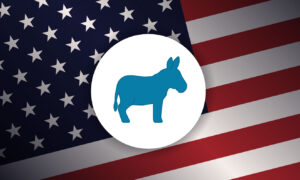The Scoop: Google called out for error-filled AI commercial. Again.
Also: Scouting America’s controversial rebrand yields results; NFL doubles down on DEI.

Google revised this year’s Super Bowl ad promoting its Gemini AI after a blogger challenged the company over cheese data used in the commercial.
Yes, cheese data.
The debate on X began when travel blogger Nate Hake, who has about 2,600 followers, criticized the ad.
Hake went on to point to a Wisconsin-focused segment that claimed gouda accounts for “50 to 60 percent of the world’s cheese consumption.”
“Gemini provides no source, but that is just unequivocally false,” he added. “Cheddar & mozzarella would like a word.”
Google executive Jerry Dischler responded by calling Gemini’s claim an AI hallucination and said the stat came from websites it had scraped. “Gemini is grounded in the Web – and users can always check the results and references,” he wrote. “In this case, multiple sites across the web include the 50-60% stat.” Despite Dischler’s pushback, Google posted a revised version on YouTube. The BBC, Gizmodo, CNN, the New York Post and other major outlets later reported on the issue.
In a statement to the BBC, Google said it edited the ad after consulting the cheesemonger featured in it. “Following his suggestion to have Gemini rewrite the product description without the stat, we updated the user interface to reflect what the business would do,” the company said.
Why it matters: This situation is a prime example of why proper vetting, testing and listening is so important to any public-facing material.
Gemini got the answer wrong, plain and simple. And with a simple Google search, the makers of the commercial would have recognized that fact.
Frankly, Google should know better by now. This isn’t the first time company has struggled with ads that feature AI.
Anyone remember the tone-deaf “Dear Sydney” ad Google meant to use to highlight the power of Gemini during the Olympics? The company yanked that 60-second ad from NBC’s broadcasts after criticism of a dad helping his daughter use AI to produce a “heartfelt” letter to her Olympic hero.
Using AI presents a lot of potential pitfalls, both in the content it produces and in how people perceive those outputs. In both of these Google cases, spending a bit more time reviewing the commercials could have helped catch and avoid those PR disasters.
Both Google ads were lighthearted in nature. Is cheese popularity the most important topic in the world today? Of course not. But by not doing a little more vetting, Google unnecessarily opened Gemini, and one of the company’s top executives, to numerous negative headlines.
Moral of the story: You can’t trust AI can’t to be correct. That’s true if you’re writing a press release or making an ad for the nation’s largest TV viewing event. Proceed with caution.
Editor’s Top Reads:
- Scouting America, soon to be officially renamed from the Boy Scouts of America, has experienced modest 2% growth in membership since announcing its rebrand. Notably, 196,000 girls took part in the past year, a record for the organization. Cub Scouts, the program for its youngest members, saw a 3% membership increase. “The fact that we were going with a more kind of gender-neutral name, a lot of people kind of wanted to know more about it,” CEO Roger Krone told the Associated Press ahead of the group’s 115th birthday celebration on Saturday. The rebrand has faced criticism over its perceived impact on the organization’s historic identity. But Scouting America has continuously framed the shift as a natural evolution rather than a break from tradition and longstanding values. It would have been easy to back down after intense backlash, but the organization was prepared, stuck to its stance and is now seeing the fruits of its labor.
- Despite a shifting political climate and external pressures to roll back DEI initiatives, Commissioner Roger Goodell made it clear this week that the league has no plans to change course. NFL owners, many of whom have supported the Trump administration, back the league’s DEI stance, emphasizing that the league thrives when teams consider a diverse pool of candidates, according to the Wall Street Journal. “We got into diversity efforts because we felt it was the right thing for the National Football League, and we’re going to continue to do those efforts. We’re not in this because it’s a trend to get into it or a trend to get out of it.” Goodell stressed this week that the NFL’s diversity committee has met multiple times in recent months and expressed confidence that the league’s policies are legally sound and aligned with both the current and previous administrations. “This is about opening that funnel and bringing the best talent into the NFL,” Goodell said. By tying DEI efforts directly to business outcomes (in this case, good football), the NFL can make their case to prospects, the public and (potentially) the courts.
- The Super Bowl returns Sunday. But for participating brands, the game in New Orleans marks the culmination of months of PR efforts to build buzz ahead of their 30 to 60 seconds in the international spotlight. This week, PR Daily highlighted the strategies of three brands – Taco Bell, Doritos and Coors Light– showcasing how each went beyond simply creating a fun commercial. Their approaches included a typo-driven stunt, leveraging local markets for contests, and other creative tactics to maximize engagement ahead of the big game. Happy football and commercial watching, to those who celebrate.
Casey Weldon is a reporter for PR Daily. Follow him on LinkedIn.







